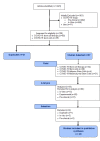Research progress on Mesenchymal Stem Cells (MSCs), Adipose-Derived Mesenchymal Stem Cells (AD-MSCs), Drugs, and Vaccines in Inhibiting COVID-19 Disease
- PMID: 33014532
- PMCID: PMC7505274
- DOI: 10.14336/AD.2020.0711
Research progress on Mesenchymal Stem Cells (MSCs), Adipose-Derived Mesenchymal Stem Cells (AD-MSCs), Drugs, and Vaccines in Inhibiting COVID-19 Disease
Abstract
Mesenchymal Stem Cells (MSCs), and Adipose-Derived Mesenchymal Stem Cells (AD-MSCs) have been used for many years in regenerative medicine for clinical and surgical applications. Additionally, recent studies reported improved respiratory activity after intravenous administration of MSCs into patients affected by coronavirus disease 2019 (COVID-19) caused by the Coronavirus 2 (SARS-CoV-2) suggesting their role as anti-viral therapy. Severe COVID-19 patients usually progress to acute respiratory distress syndrome, sepsis, metabolic acidosis that is difficult to correct, coagulation dysfunction, multiple organ failure, and even death in a short period after onset. Currently, there is still a lack of clinically effective drugs for such patients. The high secretory activity, the immune-modulatory effect, and the homing ability make MSCs and in particular AD-MSCs both a potential tool for the anti-viral drug-delivery in the virus microenvironment and potential cellular therapy. AD-MSCs as the most important exponent of MSCs are expected to reduce the risk of complications and death of patients due to their strong anti-inflammatory and immune-modulatory capabilities, which can improve microenvironment, promote neovascularization and enhance tissue repair capabilities. In this literature review, the role of regenerative strategies through MSCs, AD-MSCs, and adipocyte-secreted exosomal microRNAs (A-SE-miRs) as a potential antiviral therapy was reported, comparing the results found with current research progress on drugs and vaccines in COVID-19 disease.
Keywords: Adipose Stem Cells; COVID-19; Coronavirus therapy; Mesenchymal Stem Cells; SARS-CoV-2; Stem Cell Therapy.
copyright: © 2020 Gentile et al.
Conflict of interest statement
Conflict of Interest The authors declare no conflict of interest regarding the publication of this paper.
Figures
References
-
- Dominici M, Le Blanc K, Mueller I, et al. (2006). Minimal criteria for defining multipotent mesenchymal stromal cells. The international society for cellular therapy position statement. Cytotherapy, 8:315-317. - PubMed
-
- Wu Z, McGoogan JM (2020). Characteristics of and important lessons from the coronavirus disease 2019 (COVID-19) outbreak in China: Summary of a report of 72 314 cases from the Chinese Center for Disease Control and Prevention. JAMA, February 24. - PubMed
Publication types
LinkOut - more resources
Full Text Sources
Miscellaneous


